A Year of Reading
Classics, speculative fiction, domestic fiction, dystopian, memoirs, re-reads
At the beginning of each year, I look at the books I own and decide which ones I’d like to read in the coming year. There are usually some that I’ve been avoiding for a while for some reason or another & I try to make space to read those. In 2024 these books included War & Peace, Dracula & Middlemarch. And I’m happy to say that I read all three.
I also like to re-read some favourites - classics mostly, so I’ll start with them. And of course, I regularly find books secondhand & these get added in on a whim as the year progresses.
The Chronicles of Barsetshire by Anthony Trollope consists of six books which are best read in order as the characters weave in and out throughout the series, although each book is its own story:
The Warden, Barchester Towers, Doctor Thorne, Framley Parsonage, The Small House at Allington, & The Last Chronicle of Barchester.
I read The Warden last year so I started with Barchester Towers this year. Trollope was a contemporary of Dickens, and although prolific and very popular back then, his writing hasn’t endured for different reasons. I love Dickens’ writing but Trollope was a master of domestic and clerical detail; his characters are much more realistic, and his writing is not as histrionic. Trollope, like Dickens, was a wonderful satirist but he was also tender with human frailties. Mrs Proudie, Mr Slope, Miss Dunstable, the Rev. Josiah Crawley and Dr Thorne, are people I’ve come to know over the course of the six books. One of Trollope’s most beloved and memorable characters is the Rev. Septimus Hardy and we are introduced to him in the first book. His father-in-law, the choleric Archdeacon Grantly, so quick to become frustrated with this gentle, humble man of high principle, reflects on him in the last book when he is laid to rest:
‘‘I seem to have known him all my life…and I have known him as one man seldom knows another. There is nothing that he has done, - as I believe, nothing that he has thought, - with which I have not been cognizant. I feel sure that he never had an impure fancy in his mind, or a faulty wish in his heart. His tenderness has surpassed the tenderness of woman; and yet, when an occasion came for showing it, he had all the spirit of a hero…The fact is, he never was wrong. He couldn't go wrong. He lacked guile, and he feared God, - and a man who does both will never go far astray.’’
Our Mutual Friend by Charles Dickens (1865) - this is Dickens' last novel and one of his best. The book revolves around a presumed death and an inheritance that link together multiple people from all types of backgrounds in a sweeping epic that is at once both a murder mystery, a romance and a social commentary. I thought it had a different feel from many of his other books and I'd say it is probably my favourite Dickens' book.
The Three Hostages (1924) & The Island of Sheep (1936) by John Buchan - the 4th and 5th book in his Richard Hannay series. I’ve been reading Buchan’s books for decades and cycle through them every couple of years.
The Children of Men by P.D James (1992) - a dystopian tale set in a despotically ruled Britain in 2021 in which no child has been born for twenty-five years. Childless women devote themselves to dolls and baby kittens and the elderly who can’t look after themselves are quietly euthanised in special ceremonies. We were having a family breakfast at an indoor cafe a few years ago & I noticed a woman cuddling what I thought was a baby at a nearby table. Then I saw that it was a dog. People used to stop and chat when I took my children out when they were little. Now I notice more chatting between dog owners as they admire each other’s canines. Scenes like these recall this book to me.
Some classics I read for the first time:
War & Peace by Leo Tolstoy
Dracula by Bram Stoker (1897)- a strange sort of story recounted through letters and journal entries. I can’t say that I loved it, but it was an interesting Gothic tale and very unlike anything I usually read.
Middlemarch by George Eliot - I read this with my book club buddies. Such a great book & makes for good discussions on marriage and the consequences of our actions.
A Daughter of the Land by Gene Stratton Porter was published in 1918. It’s a little different – you might say darker – than some of her other novels and doesn’t seem to be as well-loved as some of her other books. It is less sentimental than Freckles or Girl of the Limberlost, and its protagonist, Kate Bates, isn’t as romanticised as some of Porter’s other female characters. She blunders through life and makes some unwise decisions. Kate learned the hard way. She was impulsive and headstrong; her upbringing had left her unprepared to navigate life outside of her own family. Despite her flawed character, I liked the realism of the story with its sharper view of life and how Kate’s character developed during the course of the story.
‘I don’t know what life has been doing to you, Katie, but Lord! it has made a fine woman of you.’
The Rector (1863) & The Doctor’s Family by Mrs Oliphant - a new author to me. Short stories from her Carlingford Chronicles. I enjoyed her lovely writing & her sense of humour. 😊
The Hopkins Manuscript by R. C. Sheriff (1939) – classed as science fiction/speculative science fiction, or ‘visionary fiction.’ This is a genre I really like & which asks, “What if?” H.G. Wells and John Wyndham wrote this type of fiction and Sherriff was thought to be the missing link between them.
In this story the moon is thrown out of its orbit and is heading towards the earth. The months leading up to this cataclysm are recorded by Edgar Hopkins, a self-absorbed bachelor who is caught up in the minutiae of everyday life while waiting, looking after his prize chickens and getting upset that his views on the coming catastrophe aren’t taken into consideration. Hopkins isn’t a very likeable man at first but over time he changes for the better. He becomes like an uncle to a brother and sister who are on their own and they make a life together for a time. As the end draws near, he places his written record in a thermos flask and hundreds of years after Western Civilisation has disappeared, his manuscript is found by the Royal Society of Abyssinia.
As with other writers of visionary fiction the focus is not so much on the coming event but on human behaviour. A book that deserves to be much better known. Published by Persephone Books.
Joanna Godden by Sheila Kaye-Smith (1887-1955) - an author I’d never heard of but she wrote prolifically of her beloved Sussex and her sense and love of place is reminiscent of Thomas Hardy’s descriptions of Wessex. Joanna Godden is the flamboyant and loveable heroine of this story who bounds through life. At the age of 24, she inherits her father’s farm when he dies in 1887, and in defiance of convention, runs it while caring for her younger 11-year-old sister.
Published in 1921, it was the author’s most successful novel. With an unusual protagonist and an unpredictable storyline, this was a beautifully written book.
Hannah Coulter by Wendell Berry (2004) - an elderly woman looks back on her life, her loves, her griefs. A reflection on change and aging. It’s gentle and somewhat sad.
Gilead by Marilynn Robinson (2004) A father’s love letter to his son knowing that he won’t be around to see the boy grow up.
🙏🏻 ‘For me writing has always felt like praying…’
It’s the second book I read this year that depicts a healthy father/son relationship. ❤️ The other one was The Road by Cormac McCarthy.
They Were Sisters by Dorothy Whipple (1943) - Dorothy Whipple is Persephone Book’s best-selling author and this is the third book I’ve read by her after being introduced to her writing about two years ago. She cares for her characters and one of her greatest strengths is that she was a supremely moral novelist. This book reminded me of Elizabeth von Arnim’s novel, Vera, in some respects with its depictions of marriage to a narcissistic character.
Detective/Crime
After a late start in this genre, I’ve enjoyed a range of different authors over the last decade or so.
These Names Make Clues by E. C. Lorac - an important and influential Golden Age author who was particularly skilled in her descriptions of place and atmosphere and in exploring psychological aspects of criminal behaviour.
An observation from Lorac’s Chief Inspector Macdonald:
''From some acts there is no escape…If you take another person’s life, for no matter what reason of private anger or vengeance, your own is surely forfeit. You may escape punishment by the law, but your own awareness you never escape…murder never can be judged as a good method of righting other wrongs. I believe that,'' he added very simply and earnestly, ''otherwise my job would be an intolerable one.''
Murder at the Mill Race (1952) – like other books I’ve read by this author, it has an intriguing plot and is written in a literary style.
Two-Way Murder - a forgotten title by the author unearthed after her death and not published until 2021. This is my favourite book by Lorac so far. A great mystery with red herrings all over the place, a bit of a romance and an unexpected denouement.
Death in Zanzibar by M.M. Kaye (1959) - the author of The Far Pavilions, Kaye was married to a British Army officer and set her range of crime novels in exotic places. I enjoyed her novel Death in Berlin more with its tangible atmosphere of post-WWII Berlin.
The Ivory Dagger, Through the Wall, Poison in the Pen by Patricia Wentworth - these Miss Silver mysteries were written from 1928 to 1961 and feature an elderly female sleuth who knits, observes and understands human nature.
The Nursing Home Murder by Ngaio Marsh (1935) - a clever mystery written in collaboration with Ngaio Marsh’s surgeon after she had an operation 😳. Marsh, a New Zealander, is credited with single-handedly reviving Shakespeare in New Zealand. She originally trained as an artist and was involved in theatre and mentoring young actors. She infused her many interests into her crime novels. BTW, the nursing home in the book is a convalescent hospital and not an aged care home.
The Groote Park Murder (1923) & Antidote to Venom (1938) by F.W. Crofts - a new author to me; very enjoyable & a bit unusual. Crofts was one of the foremost authors of the Golden Age of British crime fiction & best known for his character, Inspector French.
The Man in Lower Ten by Mary Roberts Rinehart (1909) - an American mystery/crime writer. This was a good story, but it just felt cluttered and a bit confusing. However, I’d be happy to read something else by her because this one held promise.
📚 Blueprint for Murder by Roger Bax (1948) - the story begins in Germany at the end of WW2 as the Russians were advancing. The main character was a deserter from the British Army who makes his way back to England after Germany is defeated. He’s a particularly nasty character with a past he needs to hide and will stop at nothing to conceal the truth.
📚The Kremlin Conspiracy by Joel C. Rosenberg (2018) - not my usual type of book but I quite enjoyed it. Political thriller set in 1999.
📚 Black is the Colour of my True Love’s Hair, Fallen into the Pit, The Knocker on Death’s Door and Death and the Joyful Woman by Ellis Peters (the pseudonym of Edith Pargeter). There are 13 books in the Felse Investigates series & so far I’ve only read 5 as they are a little hard to find here. I like these more than her Brother Cadfael mysteries which are mediaeval in setting. The Felse books were published from 1951 to 1978 & they are written in literary language and cleverly plotted. ‘Fallen into the Pit’ is one of my favourites. It is set in post-war England and the main protagonist is Sergeant Felse’s 13 yr-old-son. The book has some strong male characters - flawed in many ways but great father figures.
When Christmas Comes by Andrew Klavan (2021) - a mystery thriller. I usually don’t read modern thrillers but my son & d-in-law gave me Klavan’s The Truth & Beauty for my birthday last year & when I found that he had written fiction I decided to try this book. It’s the first in his Cameron Winter series and it was a great read with an unexpected ending.
Non Fiction
For the Children’s Sake by Susan Schaeffer Macaulay - I wrote about each chapter & have linked to the first.
Fierce Convictions by Karen Swallow Prior (2014) - this biography traces the life of Hannah More (1745-1833), one of the few female leaders of her times & although little known today, she was once a household name. A balanced, honest account of a remarkable woman which takes into account both her achievements and her blind spots. A committed Christian and gifted writer, her efforts included advocating for the education of women & the poor and the abolition of slavery. Her good friends included William Wilberforce, John Newton, Samuel Johnson & Horace Walpole. Along with Wilberforce and John Newton, she was a part of the
Clapham community which worked tirelessly against slavery in Great Britain.
📚The Choice (2017) by Edith Egers - the autobiography of a woman who as a sixteen-year-old Hungarian ballerina was sent to Auschwitz in 1944. The first third of the book tells her story of captivity, but the remainder is an account of Edith’s post-war journey into dealing with trauma and healing. She studied psychology in order to help others, but she was still in chains herself. A young man half her age asked her in a lecture hall if she was a Holocaust survivor and gave her a copy of Victor Frankl’s ‘Man’s Search for Meaning’:
‘Everything can be taken from a man but one thing: the last of human freedoms - to choose one’s attitude in any given set of circumstances, to choose one’s own way.’
The Truth and Beauty by Andrew Klavan (2022) - Subtitled, ‘‘How the Lives and Works of England’s Greatest Poets Point the Way to a Deeper Understanding of the Words of Jesus.’’
Klavan struggled to understand what he read in the Gospels, even though he believed what he read. What did Jesus really mean? He was discussing this with his son, who after some thought, said:
“Maybe the problem is that you are trying to understand a philosophy instead of trying to get to know a man.’’
❤️
On Mary Shelley’s book, Frankenstein:
To me, the greatness of the story, the horror of the story, and the threat to humanity the story portrays lie in the fact that Frankenstein has usurped the power not of God but of women. He has made a man without a mother. His science has eliminated the principle of femininity from the creation of human life.
📚A Chance to Die by Elisabeth Elliot (2005) - an honest, respectful bio of Amy Carmichael (founder of the Dohnavur Fellowship in India). Camichael was a role model for the author, but this isn’t a whitewashed version of her life.
The Natural Health Service by Isabel Hardman (2021) - I linked to my Substack post where I wrote about this book.
Celebration of Discipline by Richard Foster (1980) - a slow read for me this year. This is a book on the cultivation of the life of the spirit. He looks at the classic disciplines of the Christian faith - the inward and outward aspects and gives practical advice on how to build them into your life.
The life that pleases God is not a set of religious duties; it is to hear His voice and obey His word.
If we are unwilling to change, we will abandon prayer as a noticeable characteristic of our lives.
Of all the classical Spiritual Disciplines, service is the most conducive to the growth of humility.
A River in the Darkness by Masaji Ishikawa (2000) - A memoir of one man’s escape from North Korea translated from the original Japanese & published in 2017. Born in 1947 of a Korean father residing in Japan and a Japanese mother. In 1960 his family was persuaded to move to the ‘‘promised land’’ of North Korea.
Aquariums in Pyongyang by Kang Chol-Hwan (2001) - the author escaped from North Korea in 1992 and his is the first detailed testimony about a North Korean concentration camp to be published in the West. Like the book above, this is another Korean family living in Japan who were persuaded by the Chosen Soren to move to North Korea. Kang Chol-Hwan was nine years old when his family were sent to the Yodok concentration camp, and he spent ten years there before his family were ‘released.’ He escaped to China and with the help of Koreans living there, he reached South Korea where he now lives and works.
Both books describe the hardships and atrocities of life in the ‘‘hermit kingdom’’ - the world’s last Stalinist regime.
Children’s Novels
Henrietta’s House by Elizabeth Goudge (1942) Kindness, respect for old age & deliverance from pride are themes throughout this novel for children.
‘Canon and Mrs Roderick in spite of having had many children of their own still adored the species.’
‘They hardly spoke, they were so busy absorbing the beauty into their very souls.’
The Little White Horse - another book for children by Elizabeth Goudge. One of her best known and well-loved.
Historical Fiction
📚The Far Pavilions by M.M. Kaye (1978) 📚- set in India during the last decades of the 19th Century while the British ruled this is an epic 960-page saga of a young man caught between two cultures. Born to British parents, he was left orphaned and brought up by a low caste woman who had known him from birth. He was eventually united with his father’s relatives who had him sent back to England to attend school. He returned to India when he was 18 years of age to serve in the Guides Corp of the British Army but found that he had his feet in two cultures and stood ‘‘uneasily balanced between the two and unable to throw his full weight onto either.” It’s a fascinating story that immerses you in some of the history of India and Afghanistan. Kaye built her story around some factual events which she notes at the end.
Exodus by Leon Uris (1958) - I was almost certain that I read this in my late teens, but I also remember my Mum telling me about the British blockade of ships that were trying to take Jewish refugees to safety in the aftermath of the Holocaust, which the author describes. Historically based work of fiction that explores the Palestine of the late 1800’s, the creation of the State of Israel in 1948 and the building of the Nation of Israel.
The Shoes of the Fisherman by Morris L. West (1963) - an Australian author who spent time as a Vatican correspondent. A fictionalised story set in the aftermath of the death of a Pope and the election of his successor.
The Pope is dead - but the papacy lives on. Already, from all the corners of the globe, grizzled, scarlet-suited cardinals are gathering to elect a successor…the air is alive with intrigue. Then in the midst of the most frenzied canvassing, come a surprise result.
The new Pope, Kiril I, is the youngest cardinal - and a Russian, recently released from seventeen years in the labour camps.
Kiril Lakota’s background and suffering, his adjustment to his new life, and Vatican affairs are explored as are relationships between people on the fringes of the church.
The Last of the Breed by Louis L’Amour (1986) - the first time I’ve read anything by this author although we have many of his books. He has mostly written Westerns, but I discovered that this book is a departure from that genre so decided to start with this.
An American Air Force Major Joe Makatozi ‘Mack’, had test flown experimental aircraft as well as advised on their construction. Soviet agents in the American division of military personnel assignment arranged for the diversion of Mack’s plane when he was on an Arctic mission. Forced down on Russian soil, Mack was captured and brought before Colonel Zamatev who had been formulating his plans for two years.
As much as Zamatev knew about the American flyer, there was an essential fact he did not know. Beneath the veneer of education, culture, and training lay an unreconstructed savage.
After a daring escape from prison, Mack survives in Siberia using the knowledge and skills passed down to him through his Sioux/Cheyenne upbringing, making his way to the Bering Strait while being hunted by a Yakut native who would have no qualms about killing him.
👍Two maps - Central & Eastern Siberia - are included in the front of this book. 👍
Which of these books have you read? And what are your reading plans for next year?


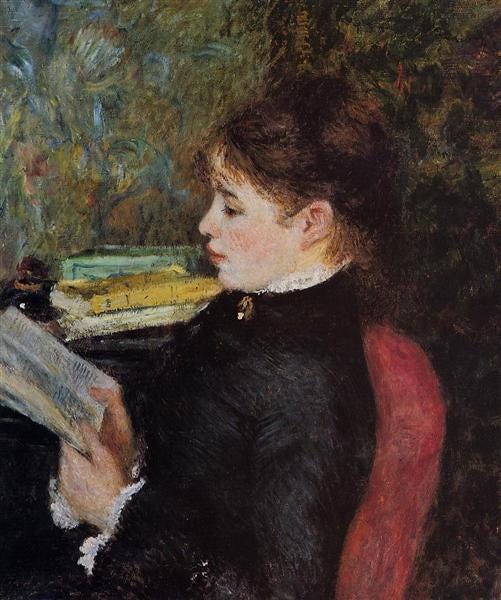
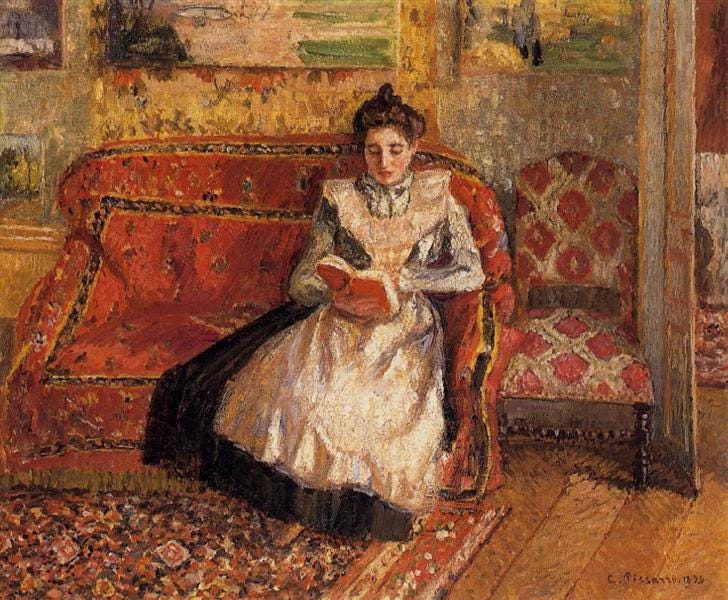
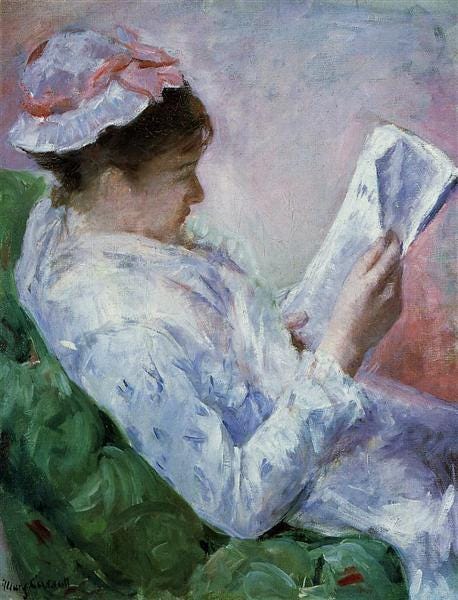
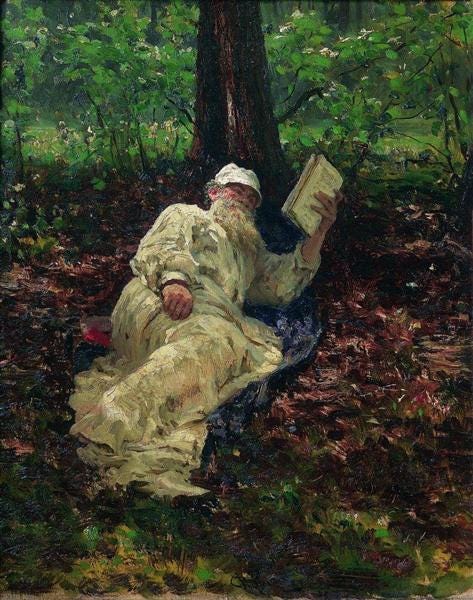
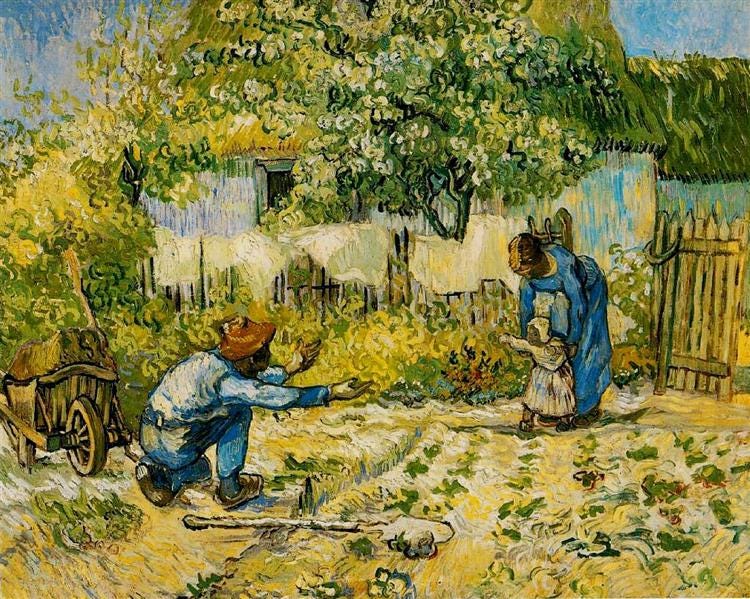
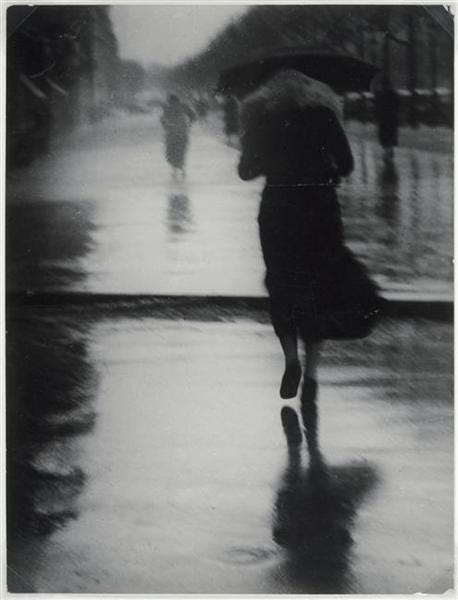
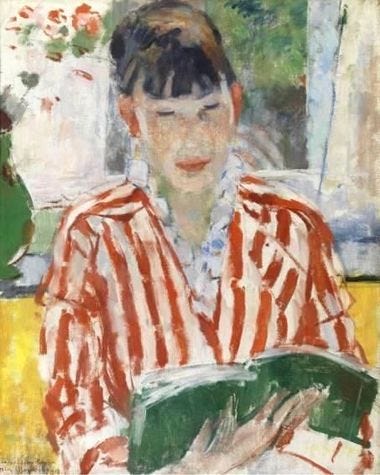
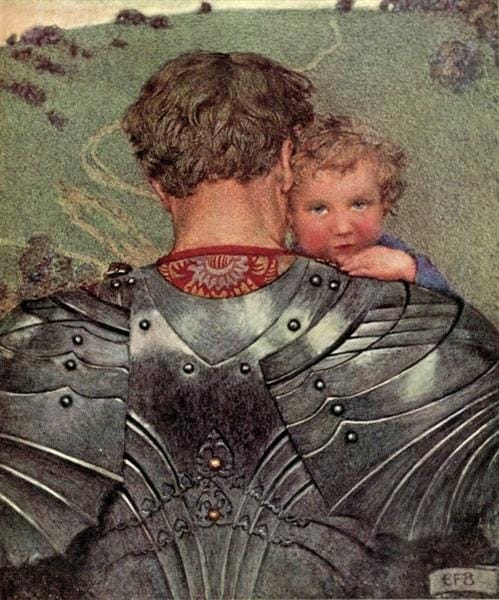
Thank you for sharing! I will add a few from your list to my reading this year. I just discovered two of ERC Lorac's book this past year but have not read the two that you mentioned. I also somehow had missed the last three Barchester Chronicles! I thought there were only three! I am excited to read the other ones!
I just finished a most beautiful book called "The Lighted Heart" by Elizabeth Yates. I highly recommend that one. It was just so incredibly lovely and joyous to read.
So many books here to add to my lists! I'm reading Middlemarch next spring and I am very much looking forward to it!